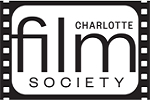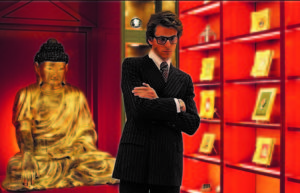Sunday, April 2, 4:00pm
Lecture Hall, UNC Charlotte Center City
Director Bertrand Bonello
France, 2014, 150 min.
French with English subtitles
Important parking information
Parking in the UNC Charlotte lots near the Center City building on weekends is only for cars with a regular parking permit for Center City and for faculty with a parking permit for the main campus. All other vehicles will be towed. Options for students and visitors: 1. Park on the streets in First Ward unless prohibited; 2. Park at 7th Street station; 3.There are a limited number of daily parking spots in Preferred Parking-owned lots nearby: Lot locations and daily fee rates.
Presented as part of The Tournées Festival, which was made possible with the support of the Cultural Services of the French Embassy in the US, the Centre National de la Cinématographie et de l’Image Animée, and the Franco-American Cultural Fund.
Additional sponsors are the Alliance Française de Charlotte and the UNC Charlotte French Club.
Introduction by Mary LaMarca, Lecturer of French, UNC Charlotte. Discussion will follow screening.
With this lushly executed, unorthodox biopic of superstar couturier Yves Saint Laurent, French director Bertrand Bonello has established himself as one of the leading auteurs of our time. Focusing on the “dark years” from 1967 to 1976, when Saint Laurent was at the peak of his powers but growing increasingly isolated through his manic work habits and equally obsessive hedonistic pursuits, becoming estranged from his lover and business manager Pierre Bergé due to a drug-fuelled affair with a notorious Paris dandy, Bonello creates an impressively layered portrait that never succumbs to the reductive formulas often found in film treatments of creative geniuses. Part of the secret lies in the way that Bonello remains allusive with his elusive subject, accumulating fragments rather than pursuing plot points. Indeed, some of the film’s most memorable episodes, such as Saint Laurent teaching an insecure client to see herself in a new light or encountering his legendary muse Betty Cattroux in a sumptuous, wordless Paris nightclub scene, feel like routine moments—which only happen to belong to the routine of an extraordinary being. Bonello’s strength lies not only in revealing the nuances of a legendarily remote character, but in capturing the electricity of his subject’s milieu with astute blue chip casting, moody scoring, and sensual camera movement. The ambition here is nothing short of operatic; it is no coincidence or hyperbole if one leaves the theater thinking of Visconti or The Godfather trilogy.



